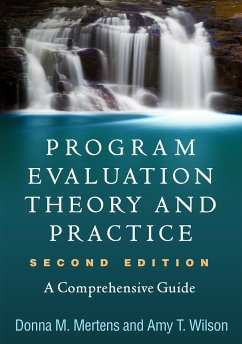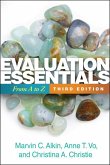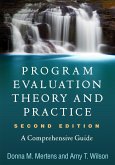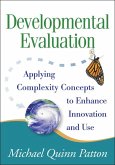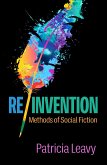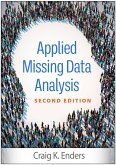Donna M. Mertens, Amy T. Wilson (United States Mill Neck Family of Organizations)
Program Evaluation Theory and Practice
A Comprehensive Guide
Donna M. Mertens, Amy T. Wilson (United States Mill Neck Family of Organizations)
Program Evaluation Theory and Practice
A Comprehensive Guide
- Broschiertes Buch
- Merkliste
- Auf die Merkliste
- Bewerten Bewerten
- Teilen
- Produkt teilen
- Produkterinnerung
- Produkterinnerung
The leading text that covers both the theory and practice of evaluation in one engaging volume has now been revised and updated with additional evaluation approaches (such as mixed methods and principles-focused evaluation) and new methods (such as technologically based strategies). The book features examples of small- and large-scale evaluations from a range of fields, many with reflective commentary from the evaluators; helpful checklists; and carefully crafted learning activities. Major theoretical paradigms in evaluation--and the ways they inform methodological choices--are explained.
Andere Kunden interessierten sich auch für
![Evaluation Essentials Evaluation Essentials]() Marvin C. AlkinEvaluation Essentials66,99 €
Marvin C. AlkinEvaluation Essentials66,99 €![Program Evaluation Theory and Practice Program Evaluation Theory and Practice]() Donna M. Merterns (Department of Education (Emerita) Gallaudet UniProgram Evaluation Theory and Practice126,99 €
Donna M. Merterns (Department of Education (Emerita) Gallaudet UniProgram Evaluation Theory and Practice126,99 €![Developmental Evaluation Developmental Evaluation]() Michael Quinn PattonDevelopmental Evaluation73,99 €
Michael Quinn PattonDevelopmental Evaluation73,99 €![Re/Invention Re/Invention]() Patricia LeavyRe/Invention45,99 €
Patricia LeavyRe/Invention45,99 €![Theory Construction and Model-Building Skills Theory Construction and Model-Building Skills]() James JaccardTheory Construction and Model-Building Skills86,99 €
James JaccardTheory Construction and Model-Building Skills86,99 €![Research Design Research Design]() Patricia LeavyResearch Design64,99 €
Patricia LeavyResearch Design64,99 €![Applied Missing Data Analysis Applied Missing Data Analysis]() Craig K. Enders (United States Arizona State University)Applied Missing Data Analysis84,99 €
Craig K. Enders (United States Arizona State University)Applied Missing Data Analysis84,99 €-
-
-
The leading text that covers both the theory and practice of evaluation in one engaging volume has now been revised and updated with additional evaluation approaches (such as mixed methods and principles-focused evaluation) and new methods (such as technologically based strategies). The book features examples of small- and large-scale evaluations from a range of fields, many with reflective commentary from the evaluators; helpful checklists; and carefully crafted learning activities. Major theoretical paradigms in evaluation--and the ways they inform methodological choices--are explained.
Produktdetails
- Produktdetails
- Verlag: Guilford Publications
- 2 ed
- Seitenzahl: 620
- Erscheinungstermin: 30. November 2018
- Englisch
- Abmessung: 251mm x 178mm x 30mm
- Gewicht: 1102g
- ISBN-13: 9781462532759
- ISBN-10: 1462532756
- Artikelnr.: 50451720
- Herstellerkennzeichnung
- Libri GmbH
- Europaallee 1
- 36244 Bad Hersfeld
- gpsr@libri.de
- Verlag: Guilford Publications
- 2 ed
- Seitenzahl: 620
- Erscheinungstermin: 30. November 2018
- Englisch
- Abmessung: 251mm x 178mm x 30mm
- Gewicht: 1102g
- ISBN-13: 9781462532759
- ISBN-10: 1462532756
- Artikelnr.: 50451720
- Herstellerkennzeichnung
- Libri GmbH
- Europaallee 1
- 36244 Bad Hersfeld
- gpsr@libri.de
Donna M. Mertens, PhD, is Professor Emeritus in the Department of Educational Foundations and Research at Gallaudet University, where she taught advanced research methods and program evaluation to deaf and hearing students. She received the Distinguished Faculty Award from Gallaudet. The primary focus of her work is transformative mixed methods inquiry in diverse communities, with priority given to the ethical implications of research in pursuit of social justice. A past president of the American Evaluation Association (AEA), Dr. Mertens provided leadership in the development of the International Organization for Cooperation in Evaluation and the establishment of the AEA Diversity Internship Program with Duquesne University. She has received AEA's highest honors for service to the organization and the field, as well as for her contributions to evaluation theory. She is the author of several books and is widely published in major professional journals. Dr. Mertens conducts and consults on evaluations in many countries, including Chile, Japan, Sri Lanka, Guatemala, Egypt, India, South Africa, Botswana, Israel, Australia, New Zealand, and Costa Rica. Amy T. Wilson, PhD, is Director of Mill Neck International at the Mill Neck Family of Organizations, where she leads a team of deaf education specialists who share their expertise, knowledge, and technical skills with parents, educators, and professionals in economically poor countries. Dr. Wilson was a professor in the Department of Educational Foundations and Research at Gallaudet University for 14 years. After living in developing countries and noting the poor assistance people with disabilities were receiving from U.S. development organizations, she developed Gallaudet's MA degree in International Development. The degree, which is the only one of its kind in the United States, focuses on the inclusion of people with disabilities in development assistance programs and in nongovernmental, federal, and faith-based development organizations both in the United States and overseas. Dr. Wilson was Program Director of the International Development Program; she also taught deaf and hearing students research and evaluation, theory and practice of international development, micropolitics, community development with people with disabilities, multicultural education, and gender, disability, and development. Dr. Wilson evaluates and advises development organizations and agencies (e.g., U.S. Agency for International Development, the InterAmerican Development Bank, the World Bank, and the Peace Corps) about the inclusiveness of their programs, as well as their effectiveness with various disability communities.
I. The Landscape of Evaluation
1. Introduction to Evaluation: Defining Terms and Ethical Considerations
2. Framing Evaluation: Paradigms, Branches, and Theories
II. Historical and Contemporary Evaluation Paradigms, Branches, Theories,
and Approaches
3. The Postpositivist Paradigm and the Methods Branch
4. The Pragmatic Paradigm and the Use Branch
5. The Constructivist Paradigm and the Values Branch
6. The Transformative Paradigm and the Social Justice Branch
III. Planning Evaluations
7. Working with Stakeholders: Establishing the Context and the Evaluand
8. Evaluation Purposes, Types, and Questions
9. Evaluation Designs
10. Data Collection Strategies and Indicators
11. Stakeholders, Participants, and Sampling
12. Data Analysis and Interpretation
IV. Implementation in Evaluation: Communication and Utilization of
Findings, Management, Meta-Evaluation, and Challenges
13. Communication and Utilization of Findings
14. Meta-Evaluation and Project Management
15. Perennial and Emerging Issues in Evaluation
Abbreviation Dictionary
Glossary
References
1. Introduction to Evaluation: Defining Terms and Ethical Considerations
2. Framing Evaluation: Paradigms, Branches, and Theories
II. Historical and Contemporary Evaluation Paradigms, Branches, Theories,
and Approaches
3. The Postpositivist Paradigm and the Methods Branch
4. The Pragmatic Paradigm and the Use Branch
5. The Constructivist Paradigm and the Values Branch
6. The Transformative Paradigm and the Social Justice Branch
III. Planning Evaluations
7. Working with Stakeholders: Establishing the Context and the Evaluand
8. Evaluation Purposes, Types, and Questions
9. Evaluation Designs
10. Data Collection Strategies and Indicators
11. Stakeholders, Participants, and Sampling
12. Data Analysis and Interpretation
IV. Implementation in Evaluation: Communication and Utilization of
Findings, Management, Meta-Evaluation, and Challenges
13. Communication and Utilization of Findings
14. Meta-Evaluation and Project Management
15. Perennial and Emerging Issues in Evaluation
Abbreviation Dictionary
Glossary
References
I. The Landscape of Evaluation
1. Introduction to Evaluation: Defining Terms and Ethical Considerations
2. Framing Evaluation: Paradigms, Branches, and Theories
II. Historical and Contemporary Evaluation Paradigms, Branches, Theories,
and Approaches
3. The Postpositivist Paradigm and the Methods Branch
4. The Pragmatic Paradigm and the Use Branch
5. The Constructivist Paradigm and the Values Branch
6. The Transformative Paradigm and the Social Justice Branch
III. Planning Evaluations
7. Working with Stakeholders: Establishing the Context and the Evaluand
8. Evaluation Purposes, Types, and Questions
9. Evaluation Designs
10. Data Collection Strategies and Indicators
11. Stakeholders, Participants, and Sampling
12. Data Analysis and Interpretation
IV. Implementation in Evaluation: Communication and Utilization of
Findings, Management, Meta-Evaluation, and Challenges
13. Communication and Utilization of Findings
14. Meta-Evaluation and Project Management
15. Perennial and Emerging Issues in Evaluation
Abbreviation Dictionary
Glossary
References
1. Introduction to Evaluation: Defining Terms and Ethical Considerations
2. Framing Evaluation: Paradigms, Branches, and Theories
II. Historical and Contemporary Evaluation Paradigms, Branches, Theories,
and Approaches
3. The Postpositivist Paradigm and the Methods Branch
4. The Pragmatic Paradigm and the Use Branch
5. The Constructivist Paradigm and the Values Branch
6. The Transformative Paradigm and the Social Justice Branch
III. Planning Evaluations
7. Working with Stakeholders: Establishing the Context and the Evaluand
8. Evaluation Purposes, Types, and Questions
9. Evaluation Designs
10. Data Collection Strategies and Indicators
11. Stakeholders, Participants, and Sampling
12. Data Analysis and Interpretation
IV. Implementation in Evaluation: Communication and Utilization of
Findings, Management, Meta-Evaluation, and Challenges
13. Communication and Utilization of Findings
14. Meta-Evaluation and Project Management
15. Perennial and Emerging Issues in Evaluation
Abbreviation Dictionary
Glossary
References

